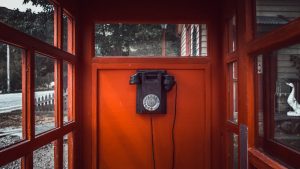In today's digital era, Parkersburg, West Virginia, addresses the growing concern of unwanted calls, particularly from telemarketers and scammers, by integrating advanced call protection technology into its public Wi-Fi infrastructure. This proactive measure safeguards users from intrusive calls, offering secure digital access. By partnering with local businesses, Parkersburg has created an extensive network that detects and blocks suspicious calls, providing relief in high-traffic areas. This initiative enhances privacy and serves as a model for other communities facing similar unwanted call attorney WV issues, fostering trust and encouraging safe online habits.
“In today’s digital age, public Wi-Fi hotspots are ubiquitous, but they also present security risks. Parkersburg, WV, has taken a proactive step by integrating call protection technology in its public Wi-Fi networks. This article explores the significance of call protection in public spaces and how Parkersburg is safeguarding its residents and visitors from unwanted calls. We delve into the implementation process, benefits, and potential challenges, offering insights into a promising initiative to enhance online security.”
Understanding Call Protection and Its Relevance in Public Spaces
In today’s digital era, public Wi-Fi networks have become an integral part of our daily lives, offering convenience and accessibility to information. However, this widespread use also opens up potential risks, especially when it comes to privacy and security. Call protection is a crucial technology designed to safeguard users against unwanted calls, particularly from telemarketers or scammers who often target public spaces due to the higher likelihood of making connections. By integrating call protection into its public Wi-Fi infrastructure, Parkersburg takes a proactive step towards protecting its residents and visitors from these persistent and sometimes malicious callers.
The relevance of call protection in public spaces cannot be overstated, especially considering the rise of unwanted calls from so-called “unwanted call attorneys” in WV and across the country. These automated or live calls, often disguised as legitimate business offers or legal notifications, can be intrusive and misleading. Parkersburg’s implementation of this technology ensures that users connecting to public Wi-Fi remain secure, minimizing the chances of falling victim to such scams. It empowers individuals to browse the internet and engage with digital services without the constant fear of being bombarded by unwanted calls.
Parkersburg's Approach to Implementing Call Protection in Wi-Fi Hotspots
Parkersburg, a city in West Virginia, has taken a proactive step toward ensuring the safety and privacy of its citizens by integrating call protection measures into public Wi-Fi hotspots. This initiative aims to safeguard users from unwanted calls, particularly those from telemarketers or scammers who often target areas with high foot traffic, like parks, cafes, and community centers.
The city’s approach involves implementing advanced filtering technologies that detect and block suspicious calls before they reach the user’s device. By partnering with local businesses and telecommunications providers, Parkersburg has created a comprehensive network that monitors and manages incoming calls. This system not only protects residents and visitors from harassing or fraudulent calls but also fosters a secure digital environment, encouraging the responsible use of public Wi-Fi hotspots.
Benefits and Potential Challenges for Residents and Visitors
Parkersburg’s integration of Call Protection in Public Wi-Fi offers a double-edged sword for residents and visitors. On one hand, this initiative significantly enhances security by safeguarding users from potential online scams, phishing attempts, and unwanted calls, especially from persistent unwanted call attorney WV. It provides an extra layer of protection, ensuring that personal information remains secure and private while connected to the city’s Wi-Fi network. This measure can foster a sense of trust among residents, encouraging them to utilize public spaces without worrying about malicious activities.
However, there are potential challenges to consider. Some users might face technical difficulties or learn curves associated with new security protocols. Older devices or less tech-savvy individuals may require assistance in configuring the settings, ensuring they can access the internet securely. Additionally, while Call Protection is a valuable tool, it does not offer complete immunity from all online threats. Users must remain vigilant and practice safe browsing habits to navigate the digital landscape effectively.






